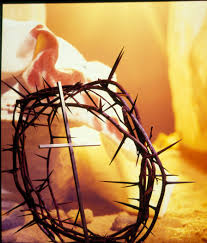One moment, Jesus is overcome with joy in the presence of God as the heavens were “torn apart” and the Spirit of God descends upon him “like a dove.” A voice comes from heaven: “This is my Son the Beloved, with whom I am well pleased.”
And then, without warning, “immediately,” says Mark, Jesus is driven into the wilderness for forty days, hurled into a place of trials and temptations, into a place where God seemed to be absent.
At one time, when I was much younger and more naïve, much less experienced in this world, this passage of scripture used to bother me. For what kind of God would fill Jesus with the light of holy love and joy one moment only to drive him into the dark wilderness in the next moment?
Well, as I have grown older, I no longer struggle with this question. Because the reality is that the Spirit of God does not have to drive us into a wilderness. We are already there. We are there because we are human, and life itself is a rollercoaster of joyous moments and wilderness moments. We encounter suffering and trials in life, not because God drives us into it, but because we are earthly creatures living in a fragmented world.
Like happens with you and me, one moment, Jesus is standing in presence of God. The next moment, he’s standing in a seemingly God-forsaken wilderness.
Last Sunday, we were invited to go the mountaintop with Jesus. It was a magnificent scene as we were standing in the very majestic presence of the Holy One, the creator of all that is. There, we were enveloped by Love, Love’s self.
But then, Monday morning came. It came for me personally when I woke to the news that my Uncle Ernie had died.
The unexpected and harsh news from my brother was especially tragic considering the recent death of Ernie’s beloved wife, my Aunt Ann, who died right after Thanksgiving. Uncle Ernie had been overwhelmed with grief and was having a difficult moving forward.
Like Jesus, one day we experience the holy presence of God, but then, Monday morning comes, and we are hurled into the wilderness.
Did you hear the good news in that sentence? “Like Jesus…” The good news of the Christian faith is that God understands. The good news is that God empathizes. The good news of the gospel is that God has experienced this world as we often experience it through the person of Jesus of Nazareth.
But there’s even better news as we read Mark’s gospel. It’s just one short sentence, but it is a beautiful sentence. Mark says: “And the angels waited on him.”
Angels, representing God’s providence and presence waited on Jesus. Suffering, struggle, and trial are present in the wilderness, but so is God! Throughout Jesus’ forty days, God was not far away, and God was not absent! God was with Jesus, ministering to him, serving him, waiting on him.
And the good news is that as angels were there for Jesus in his wilderness, we can find angels sent by God to be there for us.
Last Saturday, Uncle Ernie’s only child, my cousin Trey, had the joy of coaching the basketball team of his five-year old son, Cooper. Cooper was named after our beloved grandmother Sarah Jane Cooper. If you are a parent you may remember, it was one of those basketball games where the final score is something like 8 to 4. It was the second to last game of the season. During that game, Cooper scored his very first basket. In the moment the ball went through that hoop, knowing my cousin Trey and his love for basketball, I am sure he felt like the heavens had opened up, and the Spirit of God had descended upon him.
The very next day, Trey went to visit his Dad, who he had checked on every weekend since his mother died a couple months ago. Trey opened the front door and called, “Dad! It’s me Trey.” Hearing no answer, he walked into his father’s bedroom and found him lying face down in the bed unresponsive. Observing that he was barely breathing, he immediately called 911.
One day, Trey is experiencing heaven on earth coaching his son’s basketball game. The next day, he’s hurled into a wilderness.
Later that night, after being told by a doctor that his father’s death was imminent, Trey and his wife Kaylee got on the elevator and headed to the ICU floor. As soon as they stepped off the elevator, they immediately heard a kind, inqusitive voice from a nurse who was sitting at a desk: “Trey, is that you?”
The nurse then introduced herself to Trey and Kaylee as the granddaughter of Ms. Ava who lived next door to our grandmother when Trey was growing up. She said: “Trey, when I would visit my grandmother, I remember watching you and your father playing in your grandmother’s backyard.” She then talked about how much she loved our grandmother, so much so, that she named her daughter Sarah Jane after her. Trey said, “we named our son Cooper after her!
Trey said that Ms. Ava’s granddaughter then empathetically walked them to the room where his father was. She then went and found two recliners which she pushed into the room so Trey and Kaylee could sit Uncle Ernie’s bedside his father during his final hours.
The good news is that when we find ourselves in the wilderness, there are angels are among us, reminding us like a nurse with a daughter named Sarah Jane reminded Trey, that God never leaves us nor forsakes us. Even in the darkest experiences in this wilderness called life, God is always present.
The Rev. Fred Rogers put it this way: “When I was a boy and I would see scary things in the news, my mother would say to me, “Look for the helpers. You will always find people who are helping.”
This is especially good news this Sunday, because whether or not we are ready for it, Monday morning is coming.
On Monday morning, anxiety is usually your alarm. You are awakened with a list of countless worries. If tomorrow morning is anything like the last few mornings, added to our fretful list are the children who were injured in yet another horrific mass shooting. You worry about your own children, your grandchildren, great-grandchildren. You worry knowing that they are unsafe wherever they are, at a ballgame, at school, at a party, even at church. You grieve over the state of our country. You anguish that so many of your friends have acquiesced to the notion that nothing can be done to prevent this from happening again.
The good news, there are angels among us.
Angels like Kansas City Chiefs offensive guard Trey Smith who saw a frightened boy with his father during the shooting and used his WWE title belt to comfort the boy saying: “Hey buddy, you’re the champion. No one’s going to hurt you, man. We’ve got your back.” Then, after they were loaded onto a bus, he talked to the boy about wrestling to keep his mind off the frightening and chaotic scene.
There are angels among us like Chiefs running back Clyde Edwards-Helaire who also sheltered a boy during the shooting. The boy’s mother posted on social media: “Huge thank you to Clyde Edwards #25 for sheltering and getting [my son Zach] to safety… Clyde even went back to check on Zach to make sure he was still doing ok. What a great human being!”
And there are other angels among us living with a renewed determination to continue fighting for sensible gun laws, committed do doing more than sending thoughts and prayers.
This wilderness experience of Jesus is often called “the temptation of Jesus.” I believe we are sometimes tempted to believe that we can make it through our wilderness alone, on our own power. We are tempted to believe that our own physical power or even our own spiritual power can see us through our wilderness experiences.
However, we must be able to humbly recognize that we need another power. For if the Son of God needed angels to wait on him in his wilderness, how much more do we need angels to get through ours? How much more do we need God’s abiding presence? How much more do we need one another? How much more do we need those who have been called to be God’s transforming agents in this world, those who call themselves disciples fighting every day to make this world a more just and peaceful place to live, who are, even now, sitting all around us?
Which leads to this question: Come Monday, who might need us? Who might need us to wait on them, shelter them, calm and comfort them, fight for and vote for their safety.
It’s Sunday morning. Gathered here in the presence of God, we are loved, and we are affirmed. The heavens are open. God’s Spirit fills this room, and God is speaking to our hearts.
In a few moments, we will receive the bread and the cup, and we will know beyond a shadow of a doubt that we are loved with a grace that is greater than our sins. We will pray. We will sing a hymn. And we will make commitments and our re-commitments. During the Benediction you will hear the wonderful words: “You are God’s beloved children, with whom God is well pleased.”
Yes, it is Sunday morning, and we are here in the very presence of God. But we can be certain of this: Monday morning is coming. For some of us Monday morning may come this Sunday afternoon. As sure as we are here, the wilderness coming. The good news is: we will get through it. Something good will come out of it. Our fears will be relieved. Mercy will be given. Justice will prevail. Peace will come. Love will win.
How can I be so confident? Because when I look around this room, you know what I see? I see angels.











